The NHS is in danger of running out of protective gowns this weekend, with fears medics treating coronavirus patients may be left unprotected or have to start re-using old equipment.
Health Secretary Matt Hancock was unable to say whether there would be enough gowns when questioned by MPs on the Commons health and social care committee on Friday morning.
He warned that the service was “tight on gowns”, telling MPs that they were a “pressure point” but that he did not have “a magic wand” to fix the situation.
Download the new Independent Premium app
Sharing the full story, not just the headlines
“It’s a massive undertaking. And it’s understandable in a massive undertaking like that that there are are complications and there are challenges, and I take responsibility for getting PPE (personal protective equipment) out to everyone,” he said.
“This isn’t a responsibility I’ve caused, there are many players in it, and a hospital chief exec needs to make sure the PPE gets from where it arrives in the hospital to the right part of the hospital, but we take responsibility for the whole system.”
He said there were another 55,000 gowns arriving today but said: “We are working on the acquisition internationally of more gowns, but it is a challenge”.
The NHS recently changed its guidance on using gowns when treating Covid-19 patients, with medics no longer changing between patients in order to try and make supplies last longer.
Asked again whether there would be sufficient gowns to see the NHS through the weekend, he said: “That is exactly what we are aiming to do and then there is a question of exactly what type of gown, which is a technical question that of course has to be signed off by the Health and Safety Executive (HSE).
“That’s how we define what type of gown is the right type. We work closely with the HSE to make sure that we use all of the different types of gowns that are supposed to be used.”
Later in the same session, which was held via videolink for social distancing purposes, Mr Hancock said: “Given that we have a global situation where there is less PPE in the world than the world needs, of course there is going to be a pressure point.”
The latest news on Brexit, politics and beyond direct to your inbox
“We started with a massive stockpile but we have run through a large part of it. We need lots more companies to come forward and help us make the PPE people need.”
Asked if he could guarantee that the supply chain would provide health and care workers with all the protective kit they need, Mr Hancock said: “I do say that the supply chain is working very hard to get PPE to the frontline where it is needed.”
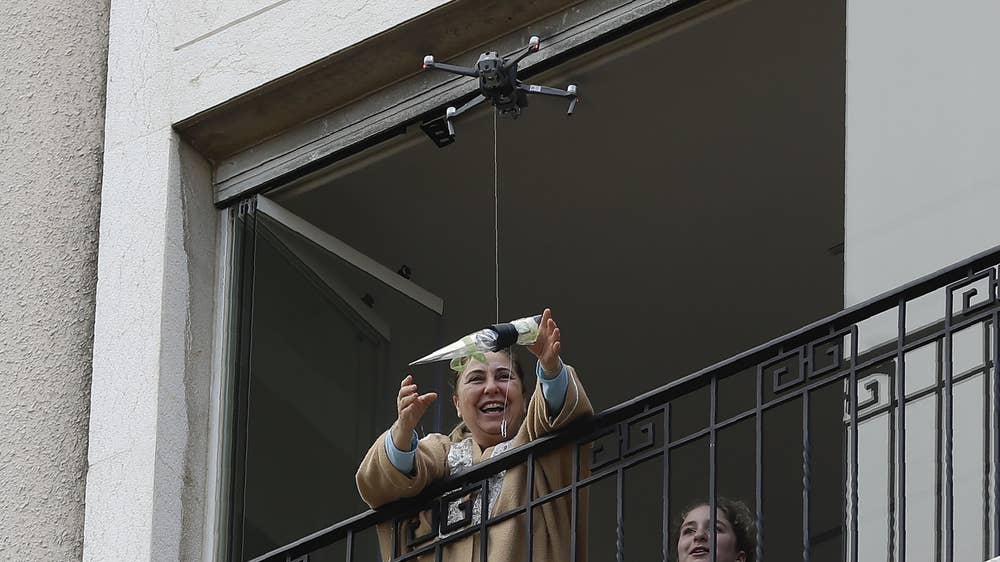
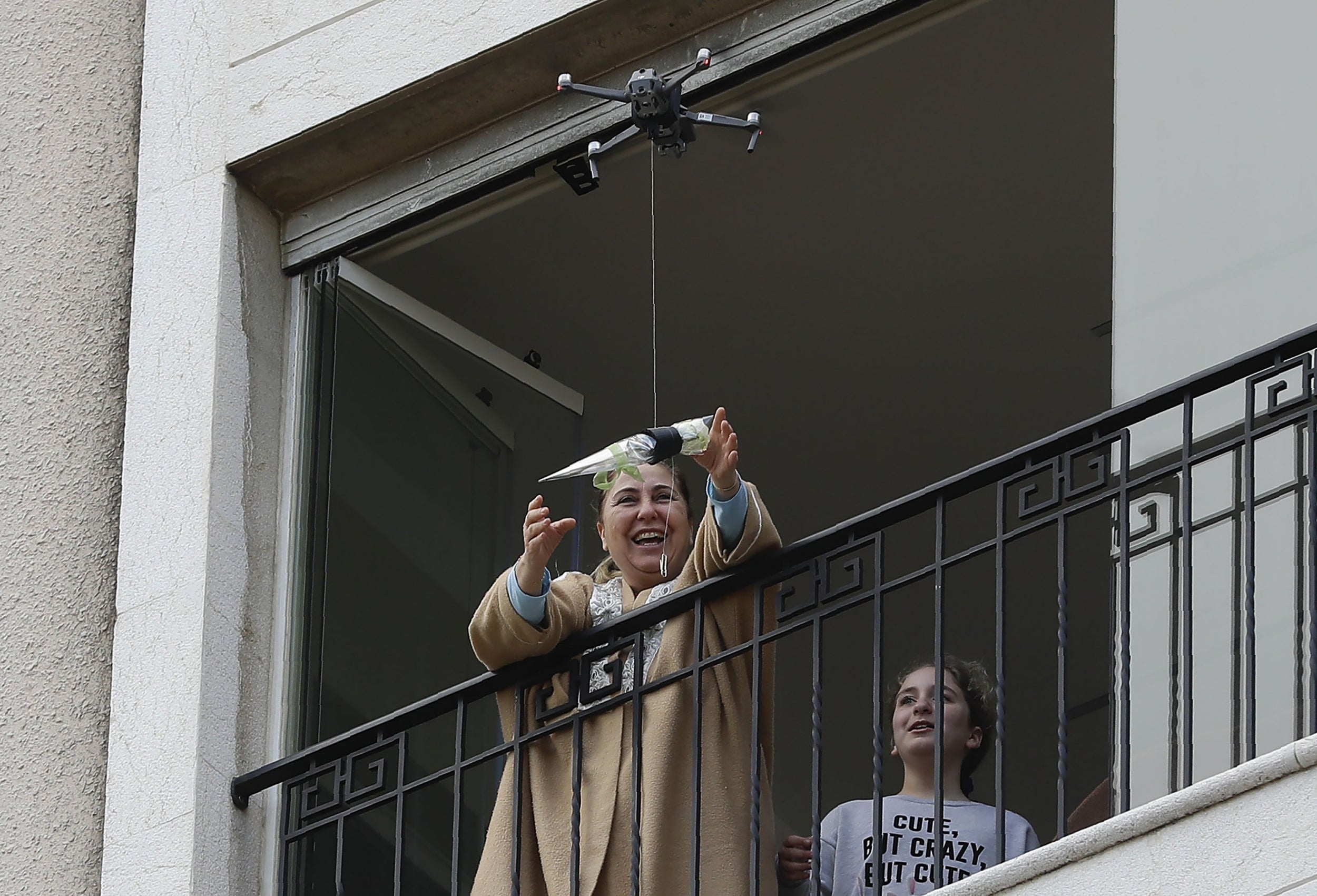
1/15
A rose is delivered by drone to a woman on Mother’s Day in Jounieh, Lebanon
AFP/Getty

2/15
Women dance on their balcony as a radio station plays music for a flash mob to raise spirits in Rome
Reuters
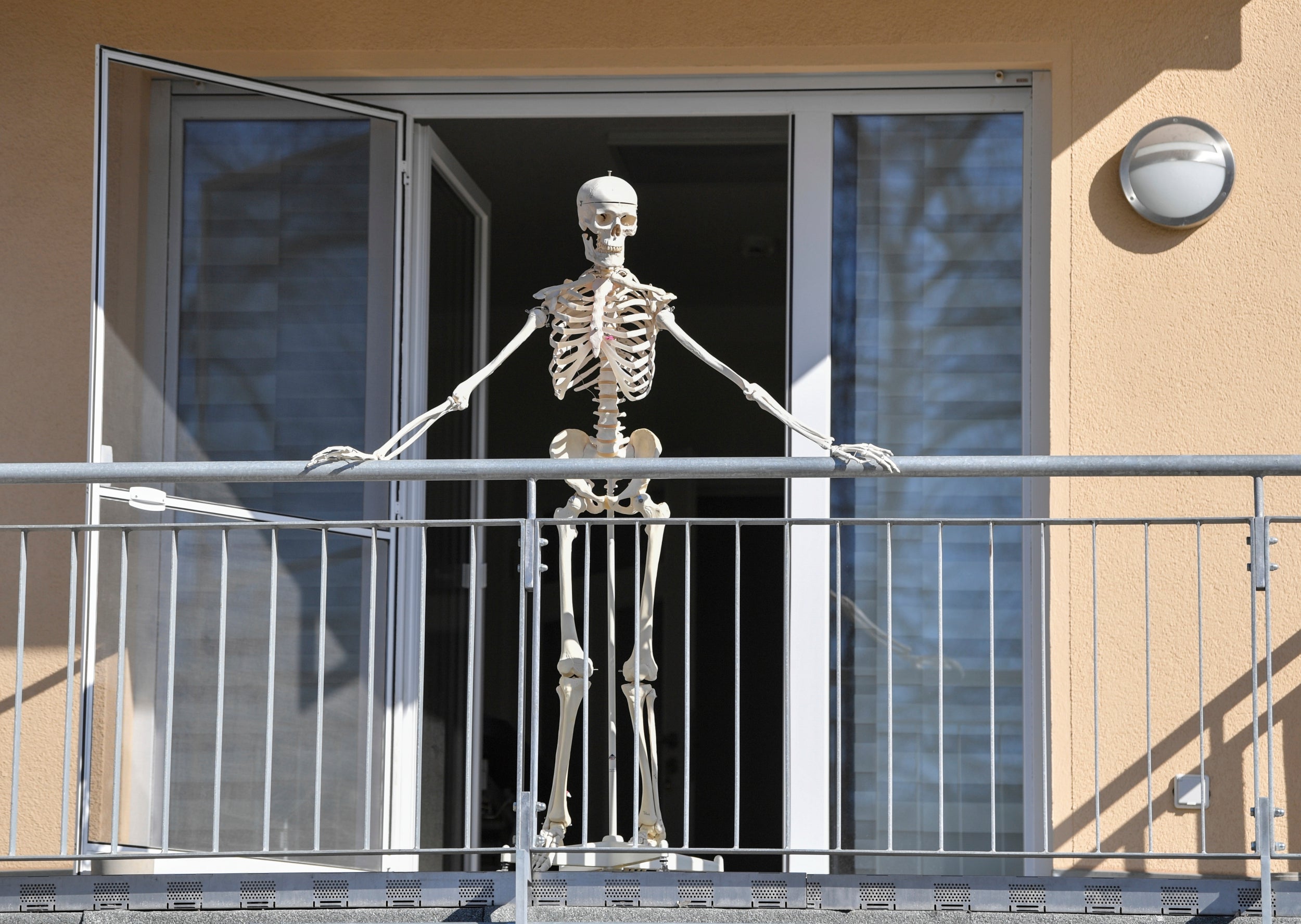
3/15
A skeleton stands on a balcony in Frankfurt, Germany
AP

4/15
The film Le ragazze di Piazza di Spagna is projected on a building in Rome
AP
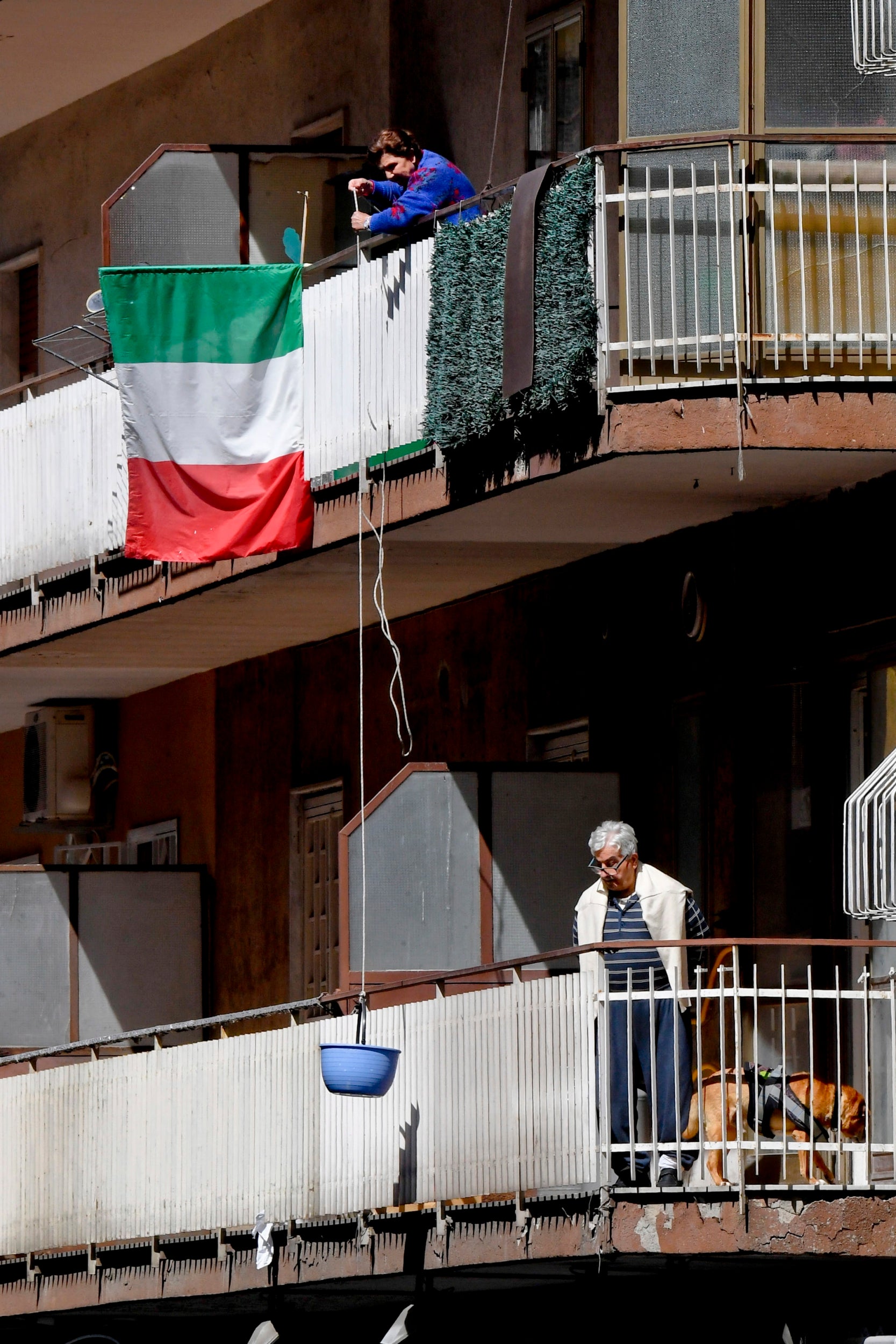
5/15
A woman uses a basket tied to a rope to pull a delivery of groceries up to her balcony in Naples, Italy
EPA

6/15
DJ Francesco Cellini plays for his neighbours from the rooftop terrace of his flat block in Rome
Reuters

7/15
A woman gestures from her balcony in Barcelona
EPA
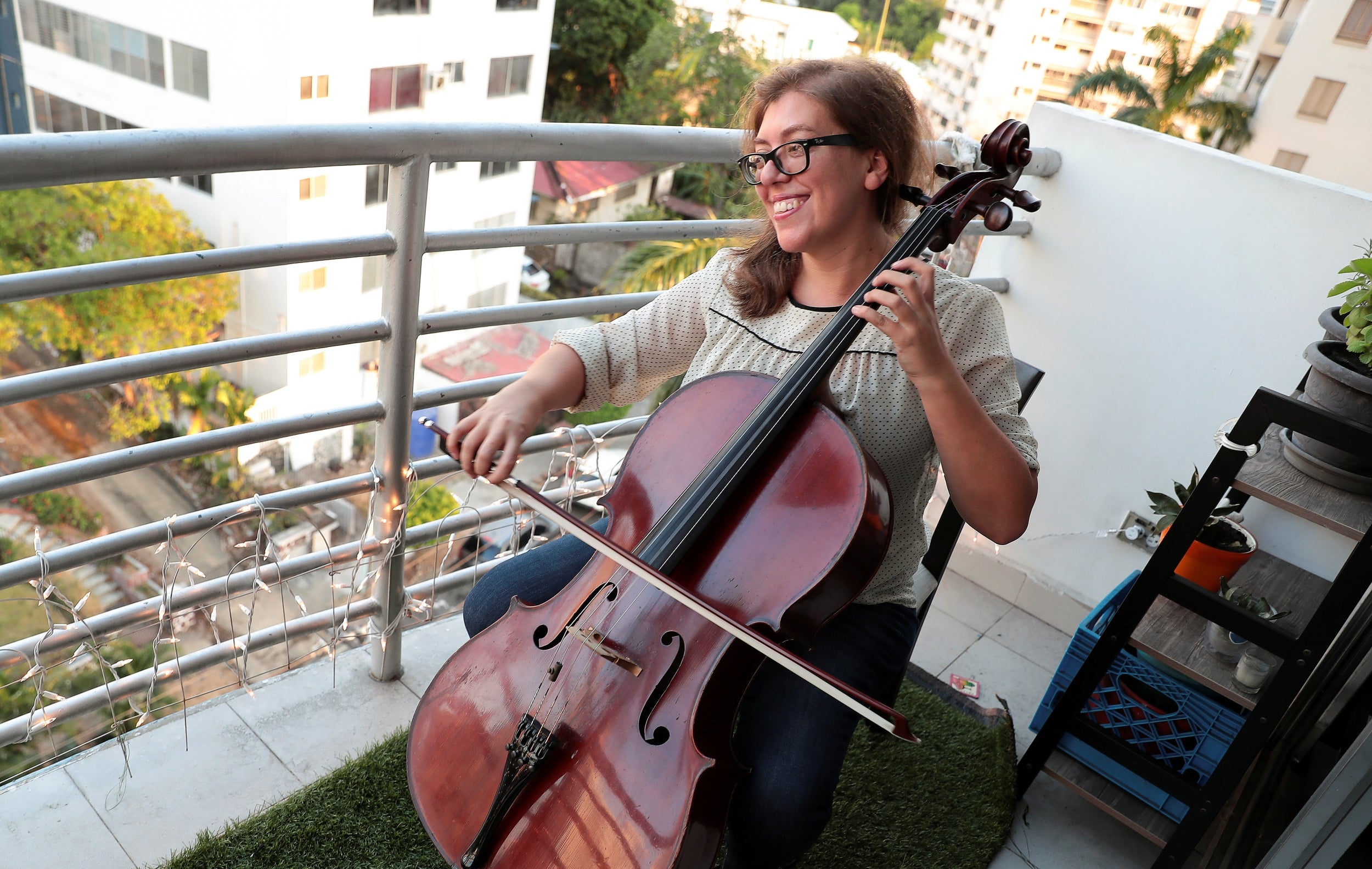
8/15
Cellist Karina Nunez performs for her neighbours at the balcony of her flat in Panama City
Reuters
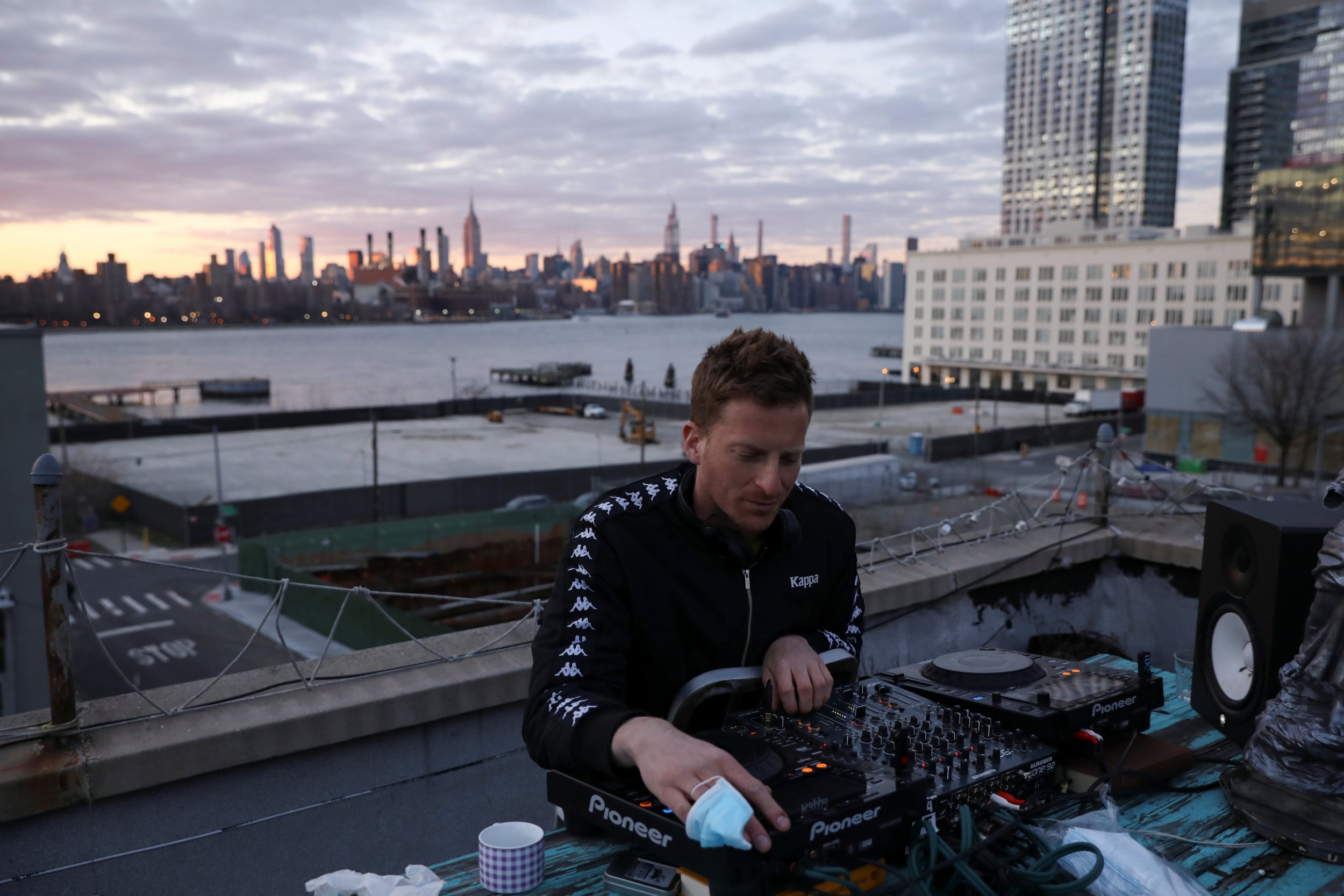
9/15
DJ Nash Petrovic live streams a set from his roof in Brooklyn
Reuters
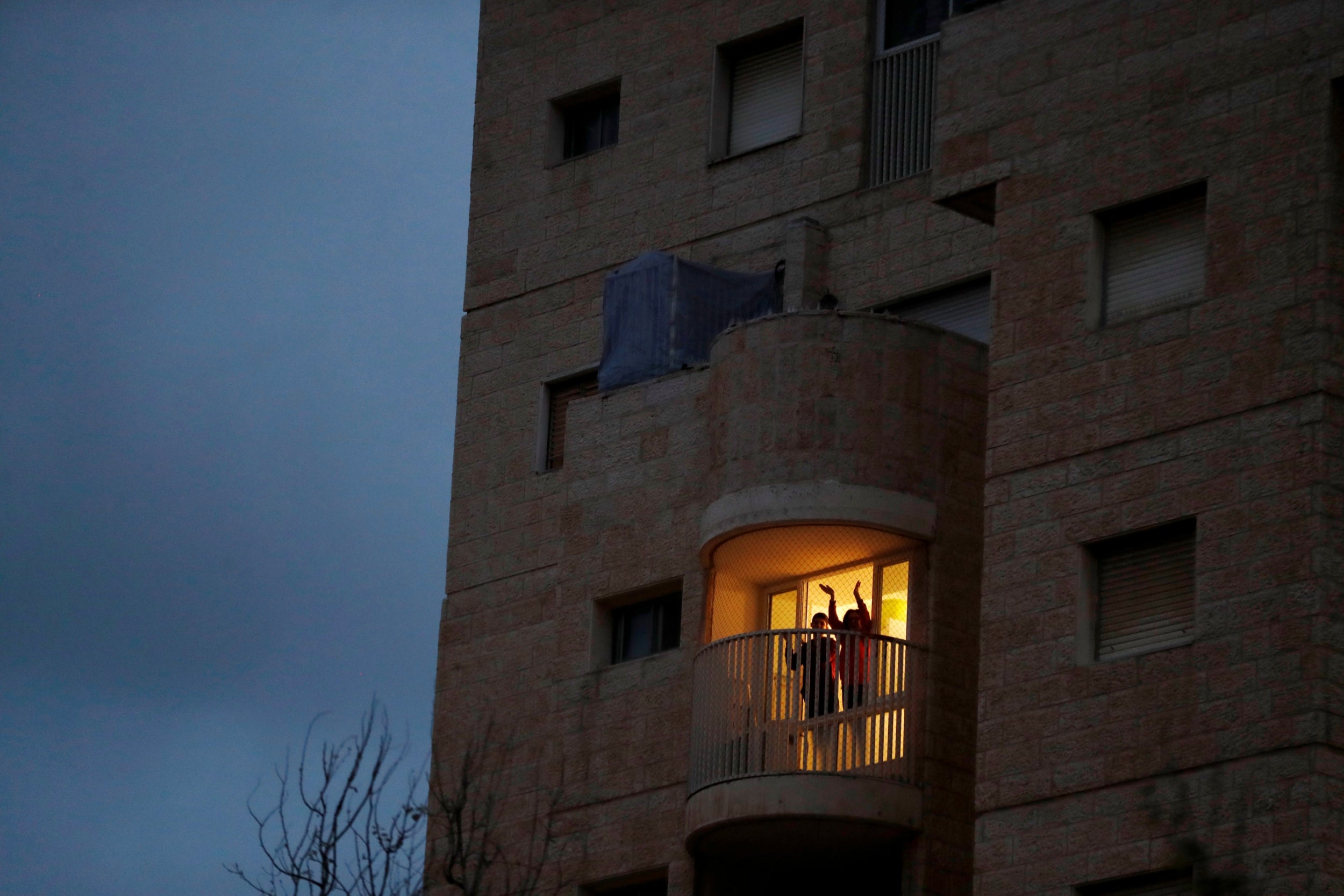
10/15
People applaud medical workers from their balconies in Modiin, Israel
Reuters
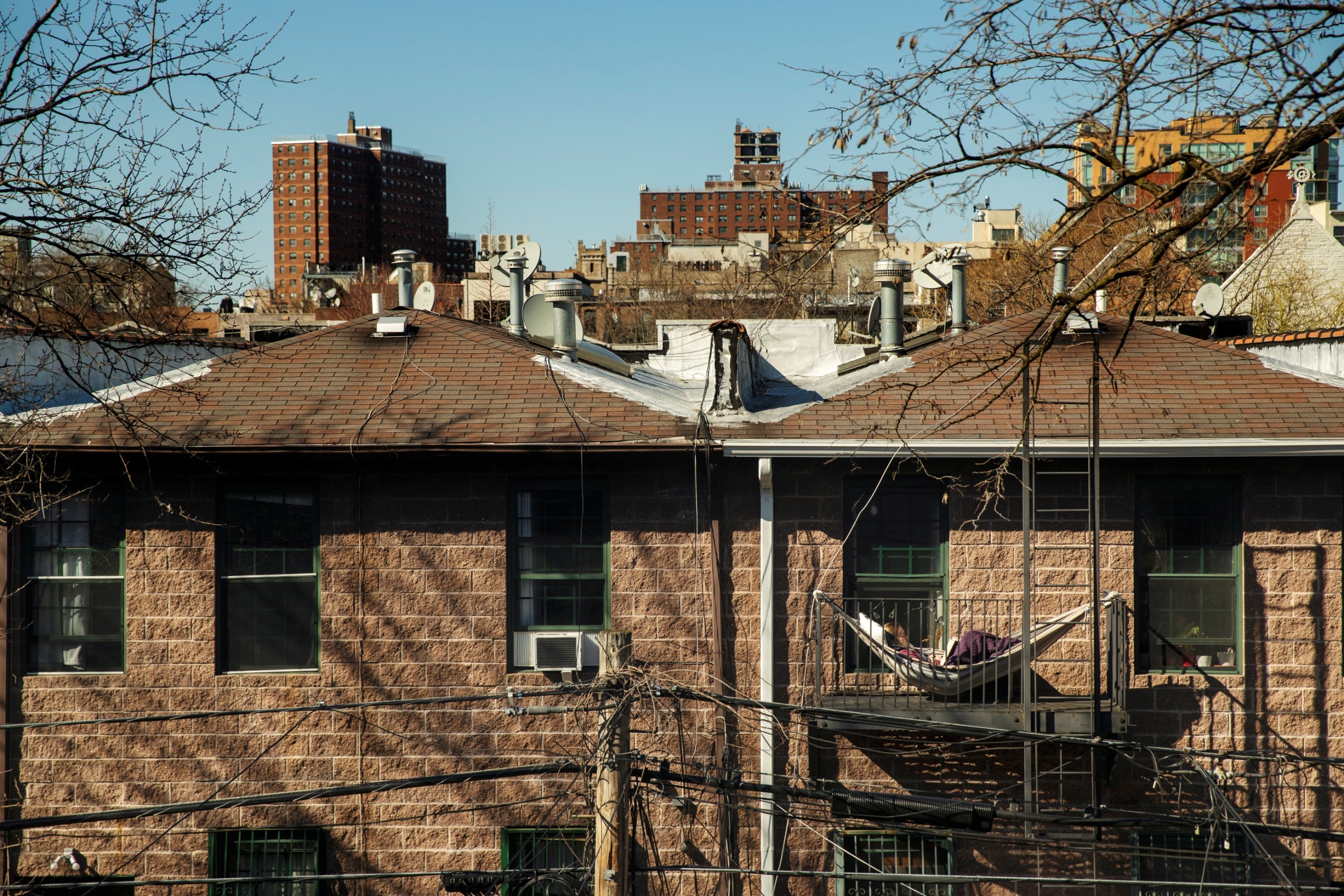
11/15
A Brooklyn resident relaxes in a hammock hung on their balcony
Reuters
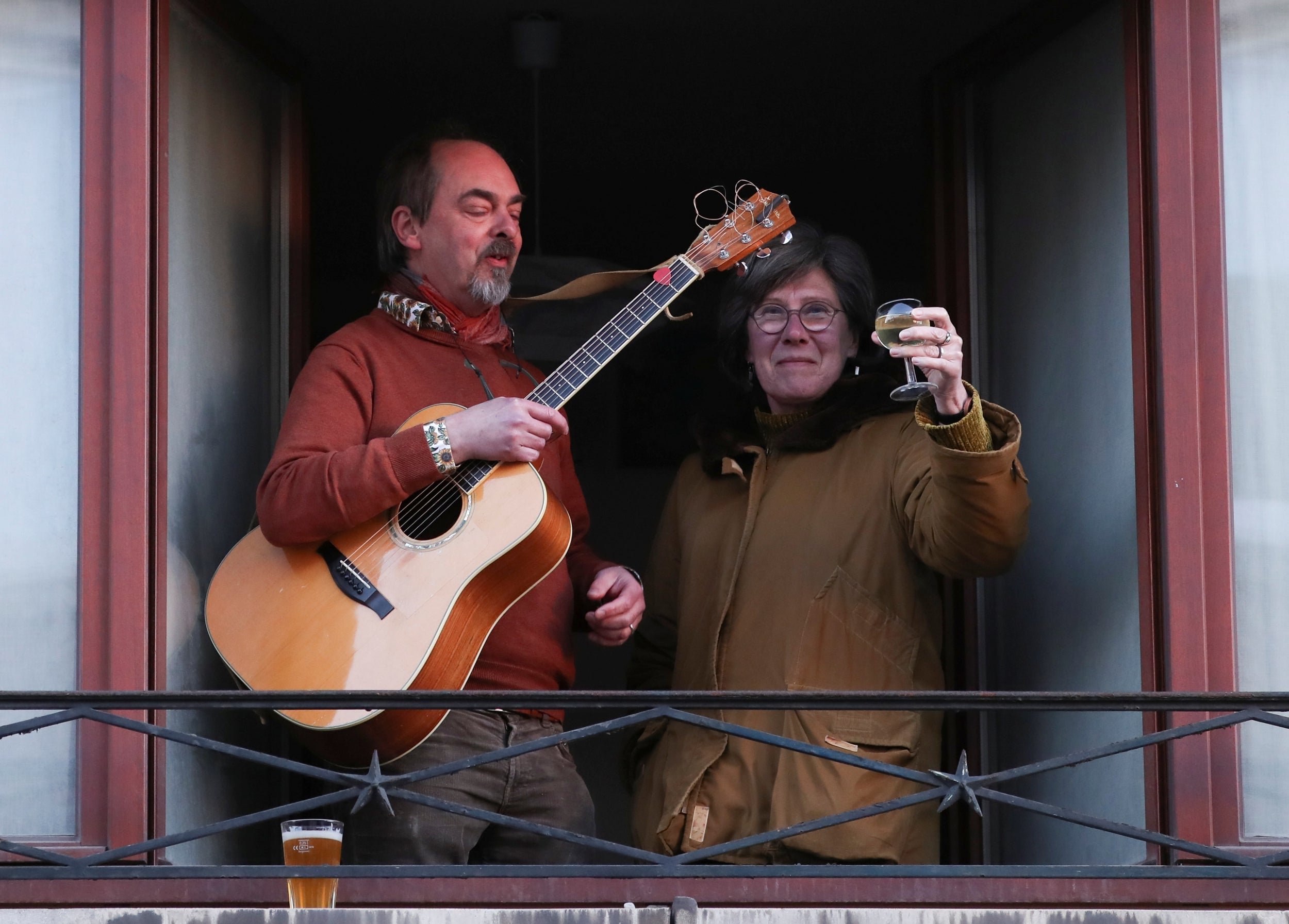
12/15
Residents toast during a “safe distance” aperitif time between neighbours in Anderlecht, Belgium
Reuters

13/15
Musician Adam Moser plays for neighbours from his balcony in Budapest, Hungary
Reuters
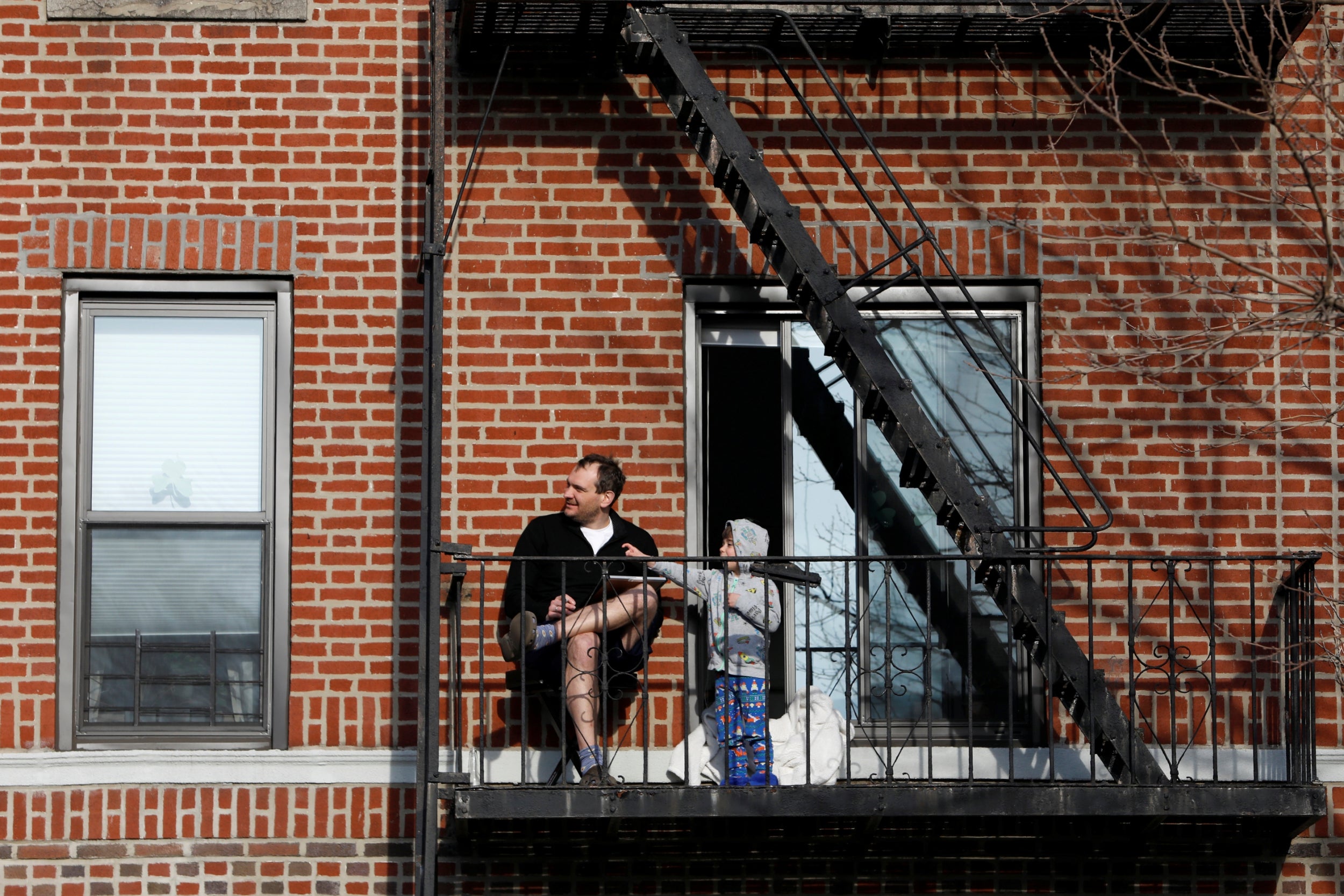
14/15
A man and his son on their balcony in Brooklyn
Reuters

15/15
A man sits alone on a roof terrace in Rome
Reuters

1/15
A rose is delivered by drone to a woman on Mother’s Day in Jounieh, Lebanon
AFP/Getty

2/15
Women dance on their balcony as a radio station plays music for a flash mob to raise spirits in Rome
Reuters

3/15
A skeleton stands on a balcony in Frankfurt, Germany
AP

4/15
The film Le ragazze di Piazza di Spagna is projected on a building in Rome
AP

5/15
A woman uses a basket tied to a rope to pull a delivery of groceries up to her balcony in Naples, Italy
EPA

6/15
DJ Francesco Cellini plays for his neighbours from the rooftop terrace of his flat block in Rome
Reuters

7/15
A woman gestures from her balcony in Barcelona
EPA

8/15
Cellist Karina Nunez performs for her neighbours at the balcony of her flat in Panama City
Reuters

9/15
DJ Nash Petrovic live streams a set from his roof in Brooklyn
Reuters

10/15
People applaud medical workers from their balconies in Modiin, Israel
Reuters

11/15
A Brooklyn resident relaxes in a hammock hung on their balcony
Reuters

12/15
Residents toast during a “safe distance” aperitif time between neighbours in Anderlecht, Belgium
Reuters

13/15
Musician Adam Moser plays for neighbours from his balcony in Budapest, Hungary
Reuters

14/15
A man and his son on their balcony in Brooklyn
Reuters

15/15
A man sits alone on a roof terrace in Rome
Reuters
Mr Hancock said he aimed to resolve PPE issues “as soon as possible”, adding: “I wish I could wave a magic wand, but I can’t.”
A minister earlier this week claimed joining an EU procurement scheme to secure more medical supplies would have made no difference to the availability of PPE. The Government previously claimed that a miscommunication resulted it in not taking part of the scheme, which includes a large order of gowns to be distributed among countries participating.
Liberal Democrat acting leader Ed Davey said that ministers’ failure to guarantee supplies of PPE raised questions over whether they were “getting a grip on the crisis”.
“For weeks we have been calling on the Government to sort out the supply of PPE,” said Davey. “Yet still, despite constant reassuring messages from ministers at daily press conferences, there is an acute shortage which is putting lives at risk.
“Instead of taking whatever action is required to source supplies, we have seen the Government act like a sulking child by refusing to join in EU procurement efforts to secure additional kit. Despite insisting they can do it alone, the Government has proven utterly incapable of coordinating production among UK manufacturers, many of whom are seemingly still waiting to receive clear direction.
“Public trust is not unconditional. As the same stories emerge again and again, nearly a month into lockdown, it’s no surprise that many are now questioning whether Ministers are capable of getting a grip on the crisis at all.”



